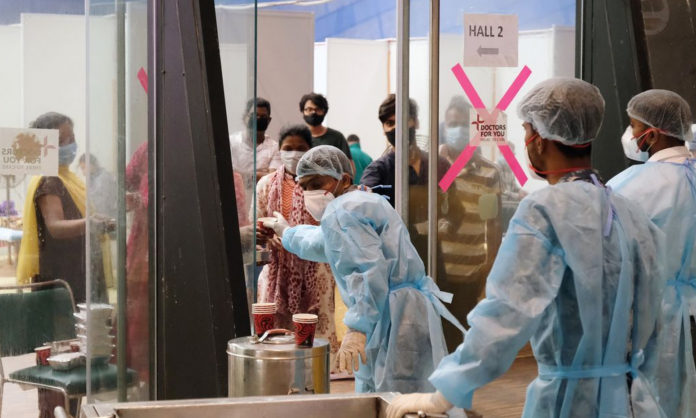In the face of the catastrophe unfolding in India, the Australian government has banned all inbound travel from the country for two weeks. Health Minister Greg Hunt presented the move as an unfortunate but necessary measure to keep Australians safe from the coronavirus, his media statement explaining that “the decision was based on the proportion of overseas travellers in quarantine in Australia who have acquired a COVID-19 infection in India”.
It is now undeniable that restricting the movement of people—at a local, regional, national and international level—is a necessary component of any serious pandemic response. Indeed, one of the main criticisms of right-wing governments across the world is that they’ve failed to act on this and other basic measures to prevent the spread of the virus.
But the government’s announcement is specifically aimed at the roughly 9,000 Australians in India. It is one thing to restrict movement in general. It is quite another for a government to abandon its own citizens—to deny them the ability to return to a place in the world that they have a right to reside.
The policy is an admission of failure. State and federal governments have had more than a year to establish facilities that do not pose risks to those being quarantined, to those who work there or to the wider public. In February, air-conditioning industry website HVAC&R News pointed out the obvious: “Any adaption of a hotel to provide quarantine capabilities will be a compromise to some extent ... These facilities were built as hotels, not quarantine facilities”.
In a separate article published last November, a former consultant with the World Health Organization was quoted as saying: “I find it strange and indeed alarming that any reports I have so far seen on the quarantine hotels assumes they will be the major buildings used for international arrivals”.
The Australian Institute of Refrigeration, Air Conditioning and Heating recommends that single-storey facilities be used to prevent the circulation of contaminated air. Both the Australian Medical Association and the Public Health Association of Australia agree and have been bombarding governments with similar advice.
Despite promising to establish a specially designed facility, Victorian Premier Daniel Andrews has done nothing except ask the federal government for funds for a proposed site north of Melbourne. Early plans to set up a hub in Toowoomba, Queensland, also seem to have been shelved.
As usual, it all boils down to money. When Peter Dutton was asked about the prospects of funding a facility in Victoria, he dismissed the idea as “smoke and mirrors” and insisted that the existing hotel system was “working very well”.
State and federal governments have decided that the lives and health of Australians trapped in India, not to mention the tens of thousands in similar situations around the world, are not a priority.
Even the limited and flawed facilities we do have are being wasted on stupidities. Celebrities and business owners have been given numerous exemptions from the travel ban and quarantine requirements.
Worse, the government has organised chartered flights for Australian athletes going to Tokyo for the Olympic games, after which they will be taking up precious space in the quarantine hotels. And that’s after they’ve been given priority access to scarce quantities of the Pfizer vaccine, which is safer for young people. It should be a national scandal that the government is prioritising pampered athletes over desperate citizens.
Proving it can be done, the South Australian state government announced in March that it would establish a regional quarantine facility. The catch? It would be used only for the intake of Pacific islanders involved in seasonal fruit picking and farm work.
It is criminal that we still do not have adequate numbers of safe quarantining facilities almost eighteen months since the pandemic began. Proper quarantine facilities would mean that we could easily get those stranded across the world home to safety. As well, they would allow us to restart and substantially expand our refugee intake, which has been on hold since March of last year due to concerns about the virus.









